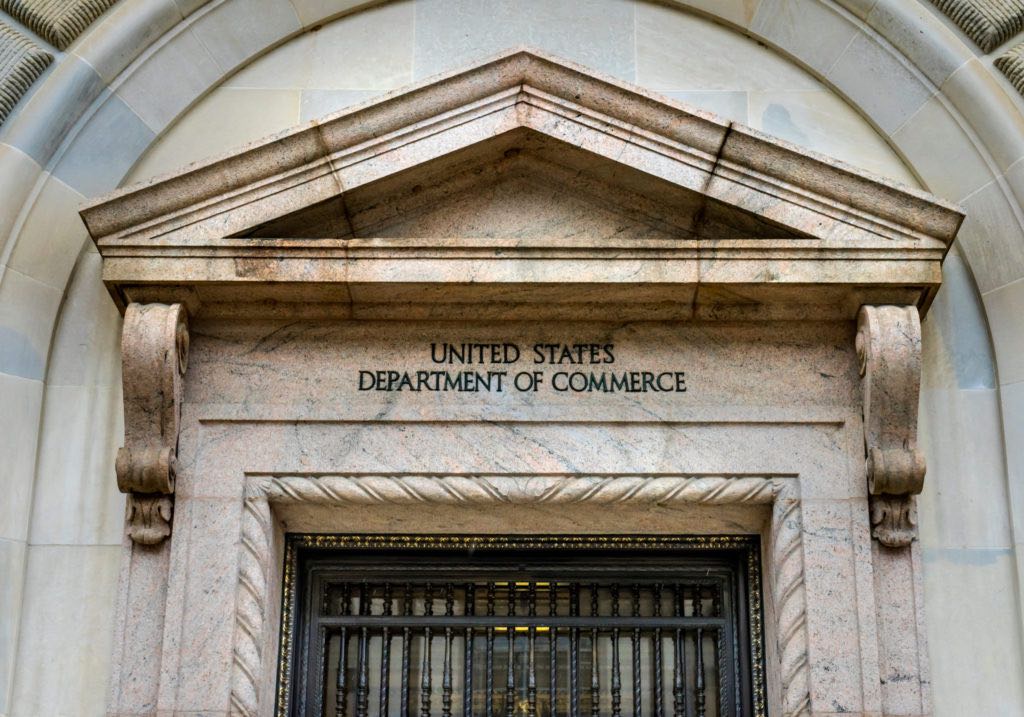
Remarks by U.S. Deputy Secretary of Commerce Don Graves at the Erasmus University Rotterdam
May 31, 2022
Remarks by U.S. Deputy Secretary of Commerce Don Graves at the Erasmus University Rotterdam
[email protected]
Tue, 05/31/2022 – 16:08
AS PREPARED FOR DELIVERY
Tuesday, May 31, 2022
Office of Public Affairs
Good evening. It’s a pleasure to join you.
The Netherlands and the United States share a long history of partnership based on shared democratic values. We are NATO allies. And our trade and investment relationship continues to promote economic growth and benefits workers in both of our nations.
In 2021, two-way trade between our countries totaled more than 88 billion dollars. Approximately 9 percent of total U.S. exports of optical, measuring, medical, or other instruments were shipped to the Netherlands in both 2020 and 2021. The Netherlands is also the seventh-largest source of foreign direct investment in the United States.
The Biden Administration is committed to revitalizing America’s alliances around the world, and recent events have shown just how critical this is. With Russia’s invasion of Ukraine, we are witnessing one of the greatest threats to European security since World War II. And with the COVID pandemic, we continue to see disruptions in supply chains.
It is against this backdrop that I’d like to discuss two key topics for the U.S. Commerce Department – the work the United States is doing to cooperate with our allies on using export controls to degrade Russia’s military capabilities, and the work to collaborate with allies to address vulnerabilities in our collective supply chains.
First, the U.S. Department of Commerce has played a leading role in coordinating with the European Union and other allies to establish a sweeping series of export controls against Russia.
For those of you who are not familiar with export controls, these are restrictions on the ability to export goods, software, and technical data to countries or persons of concern. Export controls often address national security and foreign policy concerns such as aiding the military of a foreign adversary, contributing to the proliferation of weapons of mass destruction, or providing technologies that can be misused to commit human rights abuses.
In the case of Russia, the U.S., Netherlands, and 36 other like-minded countries are using export controls to address Russia’s unconscionable invasion by restricting the export of key inputs Russia needs to further its military and defense industrial base. By imposing export controls on items like semiconductors, production equipment, aircraft parts, and infrared cameras, we aim to degrade Russia’s military over time.
And we are already seeing the impacts of our collective export controls with reports that Russia’s two major tank plants have halted work due to lack of foreign components and another Russian company being cut off from its chips, which are widely used in Russian intelligence and military systems.
These controls are cutting off Russia’s access to vital technological inputs thanks to the momentous cooperation between the U.S, the EU, and our allies.
And we are much more effective when we work together. For example, with Russia, the U.S. only accounted for less than 6% of Russia’s imports. However, together with our partner countries, we provided nearly 40% of Russia’s imports before the war.
This cooperation is key to enhancing our collective security, and it is important to continue to collaborate on export controls, including through the U.S.-EU Trade and Technology Council, or TTC, to address additional threats and emerging technologies that could be misused by countries of concern.
I now want to turn to supply chains, which comprise another complex issue that requires close coordination. The past few years have demonstrated how vulnerable our supply chains are.
First, it was COVID, and now it’s Russia’s war with Ukraine. According to Deloitte, the chip shortage of the last two years contributed to lost revenue of more than $500 billion worldwide. This shortage is resulting in higher prices for consumers both in the United States and here in Europe.
As is the case with protecting critical technologies, solving our supply chain bottlenecks is a global endeavor. We will need to shore up the like-minded partners who share our values and create diverse, resilient, and sustainable supply chains.
The U.S. government doesn’t dictate supply chains to the private sector or direct their economic activities, but COVID and Russia are hopefully wake-up calls that we need to think differently, particularly given the vulnerabilities weak supply chains pose for national security.
The Biden Administration quickly recognized this and conducted a detailed study of key vulnerabilities. The Commerce Department’s Bureau of Industry and Security worked on this study in critical sectors, including semiconductors.
The study found that semiconductor supply chains are vulnerable, which is a significant problem for consumer products from phones to cars. And it’s also no secret that many types of advanced military equipment are reliant on access to a variety of chips.
If a COVID outbreak, natural disaster, or political instability disrupts a semiconductor facility, it has the potential to threaten global supply chains. And we also shouldn’t be dependent on foreign countries that don’t share our values specific to the end-use of critical components.
Our competitors are moving ahead to support their own semiconductor industries. China has spent about $150 billion since 2014 and will spend billions more on incentives for both advanced and older chips. Current predictions suggest that China will have almost 25% of global chip capacity by 2030.
It is both an economic and national security imperative for the United States and its allies and partners to solve this crisis. Every day we wait is a day we fall further behind.
That’s why it’s critical that the U.S. Congress pass legislation that will create a fund for chip production in the United States and give the Commerce Department more tools to address the underlying long-term factors that are making supply chains fragile. These are critical tools to have in our national security toolbox.
I’m also heartened by the progress that was made earlier this month in Paris at the second meeting of the TTC. The TTC working groups are expanding access to digital tools for small- and medium-sized enterprises and securing critical supply chains such as semiconductors.
In Paris, the TTC built on its work to alleviate supply chain disruptions by agreeing to a transatlantic approach to semiconductor investment aimed at avoiding subsidy races. And it agreed to pilot an early warning system for semiconductor supply chain bottlenecks.
As we continue our efforts on both export controls and supply chain issues, the TTC will be a key forum for our cooperation. Through all this work, we’re building a more competitive and prosperous global economy for our nations’ families, businesses, and workers. And at the same time, together we can lead the world with our shared core values and secure the promises of democracy over autocracy.
I’m grateful to our EU partners – including the Netherlands – for their partnership and continued work to strengthen the bonds between the United States and Europe. I look forward to our continued efforts to build a better future for the world, and support both of our nations in the 21st century economy. Thank you.
Bureaus and Offices
Bureau of Industry and Security
International Trade Administration
Leadership
Don Graves
Read the full report from the U.S. Department of Commerce: Read More




